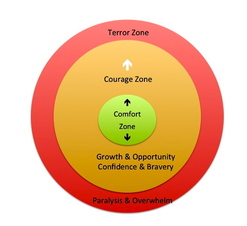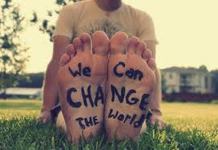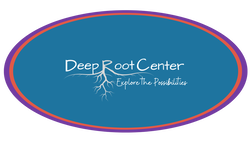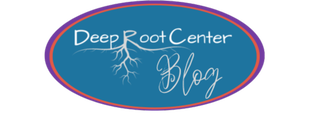 from: www.mnartists.org from: www.mnartists.org After watching Fed Up last Monday evening at Cinema 10 in Potsdam, an event co-sponsored by GardenShare and Local Living Venture, I have come to the not so startling conclusion that if we want to see change, we as citizens are going to have to affect that change ourselves. So in two words, I am Fed Up, which is exactly what the producers of the movie originally intended, hence their title. The movie, very briefly, is about the food industry and its ability to buy the legislation on the national level they need to keep producing and promoting the sub-par food products found in our grocery stores today. This particular post, however, is not about the food industry per say. It is about the Grass Roots movement around sustainability, social justice, and equal rights that took off in the 60s and 70s, died out in the 80s and 90s, but is back with a vengeance today, hopefully to grow even more. Yes, those hippies with their flower power, living off the land and making love not war, as well as the civil rights, non-violence movement led by MLK and other visionaries had it right. Create and move the ideas and policies from the bottom up. Forget this trickle down nonsense (money or ideas); it doesn't work. So how do we get enough people to first realize there are serious problems, secondly decide they want to learn more about the problem, and thirdly decide to act instead of merely observe? I firmly believe that education will play a huge role in turning this around. In a recent post, I wrote that people who are involved in their own education (self-directed/independent learners) are not only able to find information, they are also able to disseminate “good” from “bad” answers to their questions. When we teach kids (and adults) how to learn, they will be more willing to look at and analyze everything with objectivity instead of a sense of inevitability. They will take issue with the status quo, because they will have the tools to change what they see needs to be changed! This is happening all around us. In a recent decision in Colorado the Jefferson County (area surrounding Denver) School Board announced that they are proposing using a different history curriculum that reflects positively on history. In other words, they are white-washing historical fact, because real history is too depressing. Based on what they have learned about civil rights, the students in these schools decided to fight back and walked out in protest. Their act of civil disobedience was reported in the Huffington Post as well as other media outlets. This is just one example. There are people taking action all over the world, and I am confident that actions for change will continue to grow from the local level. It is those people who are challenging the world as we know it who will be become the movers and shakers of the future. Government will not change until the change has already occurred at the ground level. When will YOU decide enough is enough, step up to the plate, and take action? Are you Fed Up yet? What will it take to get you there? We can change the world through positive action. Will you join me and say “yes” to peaceful protest, “yes” to standing up to be counted, and “yes” to influencing our own history and making sure our children and grandchildren know that we made a difference? Let's revise and rewrite the way our world works from the local, grass roots level and make future generations and all those old hippies proud. We can do this together!
2 Comments
 from the linked article from the linked article I read a recent article on Buffer.com called 6 Ways My Brain Stops Me from Creating – And How I am Fighting Back By Courtney Seiter and immediately said, “I could have written that.” Really! Everything she explains in this article is exactly (almost) what I experience while going about my everyday life. I have a lot of ideas (some great, some not), but most of them don't see the light of day because of the fear induced by the thought of leaving my comfort zone long enough to get them out there. When I tell people I am an inherently shy person, some are surprised. Yes in the last year, I have explored the area directly surrounding my comfort zone, but not that far afield. As much as I congratulate myself on those expeditions, with the exception of a few excursions, I haven't really pushed into that uncomfortable, life-changing zone yet. But when I did get out there, awesomeness happened. So why don't I go to the extremes more often? I think it is mostly the fear of being recognized (really I don't even like wearing earrings because it may draw attention my way) or of being rejected. At this point, I am realizing that the boundaries that I have placed all around are not helping either me or Deep Root Center in any way. I need to break out. No, that does not mean you will suddenly see me dancing down Main Street with a DRC sign (I just broke out in hives imagining that scene). However, I will be following up on leads that have laid fallow and taking my ideas farther afield. There are kids in our community who really need this option, and I am going to make sure they hear about this game changer! So why am I writing this post now? After reading that article, I understand that I am not the only one hiding out in my padded, cozy, comfort zone. Everyone has things they are afraid of or are uncomfortable doing. What are yours? Join me in the courage zone where awesome growth and opportunity are waiting. Let’s set the world on fire!  This post comes after much thought, research and deliberation. It also comes after a barrage of articles in periodicals and newsletters as diverse as TIME magazine and the AERO (Alternative Education Resource Organization) on-line newsletter. Everyone (or so it seems) has a very strong opinion attached to the subject of technology and its proliferation in our everyday lives. On one hand, I completely understand and agree with the argument that an over abundance of screen-time is inhibiting our kids from learning about and spending time in nature and they are losing their innate ability to entertain themselves. It also has neurological consequences when you consider being connected and “on” all the time. Our brains are not designed for constant external stimulation. However, to blame technology as the cause for all society’s woes is completely unfair. Parents and grandparents have been complaining about the next generation and their habits since the beginning of time, or at least the last century. If you listen to the subtle messages from some, our kids (the Millennials) are disrespectful, disengaged, spoiled, unsociable brats. But if you go back 50 years, the Greatest Generation was using the same words to describe the Baby Boomers. And 30 years ago, those Boomers were pronouncing the same for all the Gen X'ers. It is amusing to realize that computers, cell phones, and all the other gadgets didn't exist on a personal use level until just a few short years ago. And in the words of the awesome Neil DeGrasse Tyson, “Kids are never the problem.” I firmly believe, as with other parts of our lives, moderation is the key. Consume too much of anything, whether it is a “good” or “bad,” and you are bound to feel the ill effects. We use technology as a tool to learn or to grow a business, to write or to play games, to research or to communicate. It is part of our everyday world and makes our lives easier. We can't refuse to use or even legislate technology just because some may use it to excess. The ease with which people can access information, communicate, create art or literature, or entertain themselves through games or video is the main reason self-directed learning is surging to the forefront of educational practices. Technology serves to enhance the learning experience, whether in the classroom, an internship, or a hands-on experience; it doesn't negate the importance of skilled instructors, mentors and facilitators. In high school, I suffered through a typing class that I actually failed, or maybe I just quit (I honestly don't remember). It was almost as miserable experience as the French classes I endured in 8th grade and then again as an adult in college, or the remedial grammar “class” I tolerated during my first year in college (when I did worksheets listening to the lessons through headphones in the college library basement). What is the point of boring you with the educational failures of my life? Well, I did learn to type, sort of, on a computer. My word count is still abysmal, as is my spelling, but with a PC, I can delete, backspace, control “X,” “C,” or “V,” and go to spellcheck, dictionary, or thesaurus.com to my heart’s content. I am the only one who really cares how fast I am typing and whether my fingers are on the “home keys” or not. I have managed to write two chapter books for kids (one is self-published the other languishes in my documents folder), research papers, and multiple blog posts. As with everything else, I am constantly practicing and improving this skill. Plus, I am ever so grateful to an obliging friend who is willing to spend her time reading and editing everything I create before it goes out to all of you. I won't mention the language thing except to say that some of us have a proclivity, and some of us don't. I am sure if it was important enough to me, I would gladly and joyfully tackle another language. Just to be clear, I have never had to or wanted to. When I went back to school (SUNY Potsdam) in 2001 (only 13 years ago), I had to use microfiche and periodical indexes to source any material I needed to write a research paper. When I think about the amount of time I spent finding articles to compare the prevalence of osteoarthritis in ancient peoples to modern populations for my final paper in Osteology, I want to sit down and cry. On the upside, MacKenzie, at the age of 4, had a great time feeding nickels into the microfiche reader. Yes, even as a preschooler she entertained herself fairly easily. No need to wonder why she has become a successful independent learner. Today my children or students can access everything they want to know by typing the subject or question into Google or any of the other programs colleges subscribe to specifically for academic research. The answer to anything they could possibly wonder about is right there in front of them in moments. Not only do they receive the answers to their questions instantly, they also learn to question those answers. And that is what gets to the very heart of self-directed learning. The ability to decipher what constitutes a correct answer from an incorrect one, understanding that there are bad answers, and that it is okay to question what appears to be an authoritative source. This is the knowledge of learning how to learn: seeking, questioning, a willingness to explore the subject with someone else, and in the end trusting their own judgment and intuition. We humans have always had that capacity, but technology has made it possible for everyone to pursue anything they want to explore in a moment’s notice. Young or young at heart, we aren't done learning till the day we leave this earth. Okay, playing games, watching movies, or stupid videos (cat, etc.), browsing Facebook, and listening to music is fun and important, too.  photo from: stopabusecampaign.com photo from: stopabusecampaign.com Early yesterday morning on my way into town, I popped Disc 3 from CSN a Box Set into the CD player. As my car descended Waterman Hill much more slowly than usual since I was behind a SLC construction vehicle pulling a wood chipper, the song Chicago started playing, and I sang along with the chorus: We can change the world Re-arrange the world It's dying ... if you believe in justice It's dying ... and if you believe in freedom It's dying ... let a man live his own life It's dying ... rules and regulations, who needs them Open up the door OK, those of you who really know me, are probably saying, but she probably didn't know all the lyrics and she sang really loudly and off key, while beating on the steering wheel. Which is all true, actually! Beyond all that, the words started resonating, and I realized that a song by Graham Nash, written in 1968 and recorded in 1971, is still current; it still has meaning and relevance. How is it that everything those folks were fighting for back when I was 4 years old is still on the agenda. I mean come on, 46 years later and we are in the same place. Really, read or even sing the words again! Changing the world: is it something we all dream of? “Be the change you want to see,” is a motto I have heard bandied around in recent years. What if we all stopped what we were doing and followed our passion or became passionate about what we are doing? What if our life's work became making this a better place for every living being? What if we woke up every morning and said, “what can I do to help someone else today?” What if we all stopped judging and started treating one another as equals with kindness and empathy? What if the acquisition of knowledge trumped the acquisition of stuff? Can we empower people to become the change they want to see? What would that look like? I may be crazy, but I believe that revolutionizing our educational models to encourage kids to follow their hearts and interests and to become thoughtful citizens of the world will allow them to take their place in all this and lead us there. Call it idealistic, unrealistic, revolutionary, or transformational. Call it anything you like, as long as my future (really far in the future) grand-kids don't come to me and say, “Hey Gram, we were listening to that really old CSN song about changing the world. Whatever happened to that?” The following is an excerpt from a post I wrote in January about trusting kids.
Trust that kids know what they need to become the best people they can possibly be. Trust in their abilities and insights. Trust in the goodness of their hearts. Trust that they will make mistakes, mess up and make bad decisions. But as with all screw-ups, believe that they will learn from the experience and move on to the next important event in their lives with a larger cache of knowledge to draw from. Trust they are not wasting precious time, “doing nothing”. They are learning, growing beings soaking up information every moment of every day, because it is impossible to “do nothing”. As parents or teachers, we can not judge what learning actually looks like, or more importantly, what experiences are valuable for an individual at any given moment. Reflecting about this particular topic, I realized I missed a huge opportunity. Not only do kids need to know we (adults) believe in them in all the above ways, but they also need to learn how to trust themselves. Once they feel our trust and respect deeply within, they can discover the power of trusting themselves. The capacity to learn is directly affected by our personal well-being and self-knowledge. If you know what interests you, what you like, what makes your heart sing, and what turns you on, you are more likely to seek out knowledge in those areas. Yes, trusting yourself is the start. Today's society teaches us that achievements and hoop jumping are more important than personal knowledge and growth. Happiness is wrapped up in the acquisition of possessions and meeting expectations of others. Is there any wonder kids get lost in all of that? If they jump through the hoops, they get the good grades and accolades from adults, and that pushes them to continue hoop jumping. The cycle begins becoming a continuous circle of pleasing others instead of themselves. All young people need to hear this message. Trust that you know yourself better than anyone else. Trust that your ideas and passions are worthy of exploration. Trust that you are learning and growing every minute of every day. Trust you will occasionally royally screw-up, but that is OK, disasters may be the best possible way to learn. Trust your decisions, don't look back and say “I wish I had...”, because everything you do has meaning. Trust your apologies will be accepted, because they are given with humility. Trust the people around you love you with all their hearts. Above all, trust that you are a good person and other people will appreciate you because you are true to yourself. |
|
© 2024 Whole Learners, Inc. 501(c)3
Deep Root Center
48 Riverside Drive, Canton, NY 13617
315*323*1435/[email protected]
Deep Root Center
48 Riverside Drive, Canton, NY 13617
315*323*1435/[email protected]



